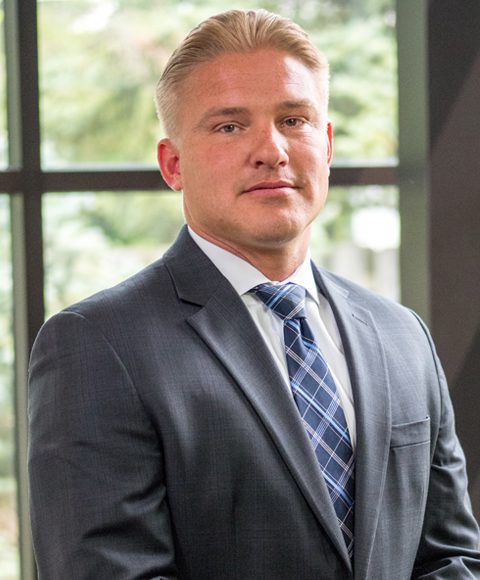You might have read recent comments by Supreme Court Justice Clarence Thomas regarding the legalization of marijuana. His comments were likely an indication of what justices might be thinking regarding this hotly debated issue. Currently, as many as 38 states have legalized marijuana for one purpose or another. The federal government, despite their inaction in enforcing federal law, has refused to legalize marijuana, which makes this issue confusing and difficult for any gun owner, service member, or security clearance holder to know if and when they can use marijuana or invest in marijuana companies.
How would legalizing marijuana affect security clearance holders, military?
Some assume that the legalization of marijuana will mean that everybody holding a clearance or serving in the military would be permitted to use. This might be true, but it is possible that the federal government still limits use under certain circumstances. It’s reasonable to assume that the federal government will continue to stand by their position that marijuana is mind-altering and that an individual under the influence of marijuana is less trustworthy with a firearm. Similarly, the federal government will almost definitely have concerns about individuals in possession of classified information being under the influence of marijuana. As many military and clearance holders are always on call, the federal government will need to figure out what rules to put into place to limit use and to ensure that people are not under the influence of marijuana in the workplace and while possessing a firearm or working in a classified setting. The next big hurdle will be figuring out how to test whether an individual is under the influence of marijuana at any given time.
There is a reasonable expectation that security clearance adjudications will change if marijuana is legalized. While most applications ask about illegal drug use in the past seven years, admitting to marijuana use will not result in a definite denial. Agencies consider frequency of use and recency. If marijuana is legalized, the drug could be dropped from the application. It is more likely that there will still be a marijuana question, just as there are questions related to alcohol. The adjudicator will likely still consider frequency and recency, but the standard will be much friendlier that it currently is.
The use of the word piecemeal
It should be significant to any military or security clearance attorney to hear a Supreme Court Justice use the word piecemeal when describing the policy of the federal government. Often, a security clearance attorney will argue on appeal that the lower decision in a security clearance matter was reached using a piecemeal approach. Given the use of the “whole-person” concept, a finding that the process was piecemeal is a finding that the decision was arbitrary and capricious and will often result in a reversal. A Supreme Court Justice does not use such a word without meaning behind it.
Why is marijuana still illegal?
There are a number of reasons why marijuana is still illegal. When considering gun rights and marijuana, the government is likely concerned that the drug is mind-altering. They are of the well-supported position that nobody should be in possession of a firearm while under the influence of a mind-altering drug of any type. If this is their position, then it is logical to believe that the federal government will never allow marijuana use within the military ranks. Legalizing marijuana does not necessarily mean they have to allow service members to use it. There would likely still be a strictly enforced ban given the difficulty in tracking use and the effects that use might have on a service member. Of course, there is a possibility that medicinal use becomes permissible if studies continue to show positive effects.
It will be interesting to see if marijuana use remains an issue for individuals applying for or holding approved access to classified information. While it is unclear if and when the federal government will allow security clearance holders to use recreational marijuana in the future, it is entirely possible that security clearance holders might soon be permitted to be involved in the sale and distribution of marijuana. There is also a good possibility that prescription medicinal use might be permissible in the not-to-distant future, assuming the applicant clears all Guideline I (Psychological Conditions) concerns during the application process and beyond. Marijuana might be as effective as and safer than some current prescription medications being used by a security clearance holder.
Maybe money is driving the delay. The federal government is likely searching for a way to profit from the legalization. Much like cigarettes and arguably-more-dangerous alcohol, the federal government will heavily regulate and tax marijuana when it is eventually legalized. This point alone almost guarantees its legalization. They will use this money for a series of efforts, including drug and alcohol prevention and training. As you might know, the federal government still considers marijuana to be a Schedule 1 highly addictive drug.
Whatever the federal government is considering, Justice Thomas might have given us a brief look into the window of the Supreme Court. While the Supreme Court does not create laws, they will occasionally determine the constitutionality of laws that make it to their court. It is certainly not a secret that the Supreme Court attempts to avoid difficult and highly controversial topics if they are able to do so. No single person or small body of judges wants to appear to be dictating laws for the nation. That said, the recent comments and the use of the word piecemeal certainly lead me to believe that the Supreme Court is asking the federal government to figure out what side of the marijuana issue they want to be on.
The federal government cannot continue to say marijuana is illegal while taking no action against the wide-scale marijuana manufacturing and distribution that has recently occurred across the country. Considering that no fewer than 38 states have legalized marijuana in some capacity, it should be easy to determine what side of the issue the federal government will likely end up on, but what is taking so long?





